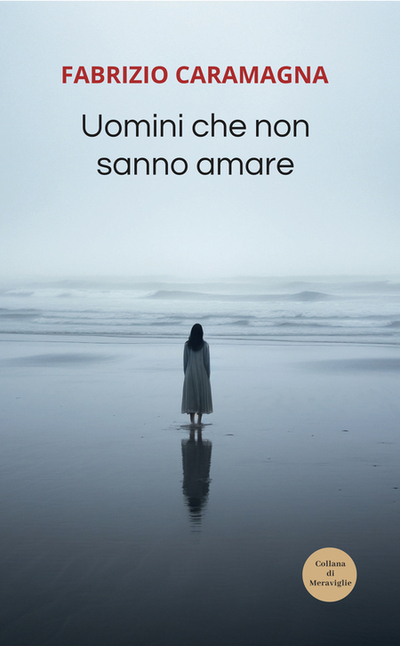
Annunci
Ma Changshan vive a Beijing (Pechino) dove è nato nel 1952. E’ membro della “Associazione degli Scrittori Cinesi”, Direttore della “Associazione Cinese di Flash Fiction” (genere narrativo breve), Vice-presidente esecutivo e segretario generale del “Istituto di Ricerca Cinese di Favole Letterarie”. E’ stato anche membro di giuria per le favole nazionali e le competizioni di racconti brevi per trenta volte. Ha pubblicato 24 libri in Cina, Taiwan e Filippine. Di questi 12 sono raccolte di aforismi. Come editore ha anche pubblicato 44 libri, prevalentemente favole e racconti brevi.
Ma Changshan afferma di scrivere aforismi da più di venti anni. “Ho cominciato nel 1990 leggendo l’aforisma di Mark Twain: ‘Se non ti piace il tempo in New England, aspetta cinque minuti’. Ero scioccato da questo paradosso. Quando ho cominciato a scrivere aforismi non ho più smesso. Nel 2012 dovrei terminare un libro che raccoglie 10.000 aforismi. Esso verrà pubblicato nel 2013”.
Ma Changshan è appassionato di aforismi e ha pianificato di venire in Europa e America, nell’autunno del 2013, per conoscere le differenti scritture aforistiche. La selezione di aforismi di Ma Changshan che pubblico qui di seguito è tratta dalla traduzione in inglese di Xiang Hua e Feng Tong:
**
Ma Changshan, aforismi scelti
A great man is one who moves slowly but resolutely and with whom the masses must run to keep up.
Un grande uomo è colui che si muove lentamente, ma risolutamente e dietro il quale le masse devono correre per tenere il passo.
**
The conservatives are a group of people with noble virtues: they leave to others the fun of blazing new paths, and leave to themselves the drudgery of passing judgment on the effort.
I conservatori sono un gruppo di persone con nobili virtù: essi lasciano ad altri il piacere di tracciare nuove vie, e lasciano a se stessi la fatica di giudicare gli sforzi.
**
Our age has the following signature feature: poetry retails at wholesale price whereas cosmetics wholesale at retail price.
La nostra epoca ha questa caratteristica: la poesia si vende al dettaglio con prezzi all’ingrosso, mentre i cosmetici si vendono all’ingrosso con prezzi al dettaglio.
**
Human society is so organized such that seldom is there a position occupied by one who best suits that position.
La società è organizzata in modo tale che una posizione viene occupata raramente dalla persona che meglio vi si addice.
**
Opportunism may yield instant gratification, while altruism leads to eternal happiness.
L’opportunismo può produrre una gratificazione immediata, mentre l’altruismo conduce alla felicità eterna.
**
The perfect man is said to have only virtues but not shortcomings. It may be deduced from this that the perfect man is not a complete man.
Si dice che l’uomo perfetto abbia virtù, ma non difetti. Si può quindi dedurre che l’uomo perfetto non sia un uomo completo.
**
Those who have suffered know what suffering is like. Those who haven’t can only imagine what suffering is like. Suffering for the latter is more boundless.
Coloro che hanno sofferto sanno che cosa sia la sofferenza. Coloro che non hanno sofferto possono solo immaginare che cosa sia. Per questi ultimi la sofferenza è più sconfinata.
**
Embrace your enemy; for this allows you to launch a sneak attack on him.
Abbraccia il tuo nemico; questo ti permetterà di lanciare un attacco a sorpresa su di lui.
**
How high the waves get during one’s journey of life depends on how much wind one runs into.
Quanto alte sono le onde durante il percorso della nostra vita dipende da quanto vento soffia intorno.
**
Life is a circle: God bestows us on our parents, our parents graduate us to society, society dumps us on our children and our children return us to God.
La vita è un cerchio: Dio ci offre ai nostri genitori, i nostri genitori ci promuovono in società, la società ci molla ai nostri figli e i nostri figli ci restituiscono a Dio.
**
The trouble with life is that, not all seasons are good for making money, but all seasons are good for spending money.
Il problema con la vita è che, non tutte le stagioni sono buone per fare soldi, ma tutte le stagioni sono buone per spendere soldi.
**
At a meeting of adults, we think of a question before deciding whether to raise our hands. In a class for children, they must raise their hands before asking a question.
In una riunione di adulti, si pensa alla domanda prima di decidere se alzare la mano. In una classe di bambini, si alza la mano prima che venga fatta la domanda.
**
We tend to get disillusioned when reaching middle age as we find that the thoughts we had when young turn out to be impractical. We get disillusioned once more when reaching old age as we find that the thoughts we had during middle age are all wrong.
Riceviamo una delusione quando, raggiungendo la mezza età, scopriamo che i pensieri che abbiamo avuto da giovani si rivelano essere poco pratici. Veniamo delusi ancora una volta quando, raggiungendo la vecchiaia, scopriamo che i pensieri che abbiamo avuto durante la mezza età erano tutti sbagliati.
**
Yielding to present temptations costs one future happiness; rejecting them costs one present happiness.
Cedere alle tentazioni presenti costa la felicità futura; rifiutarle costa la felicità presente.
**
I don’t ever join a chorus, especially one with a conductor.
Non ho mai fatto parte di un coro, in particolare di quelli con un capo corista.
**
Poetry is a precise expression in a vague form.
La poesia è una espressione precisa in una forma vaga.
**
Before the telescope came into being, men had been looking into the distance through myths and poems.
Prima che il telescopio venisse scoperto, gli uomini avevano cercato la lontananza attraverso miti e poesie.
**
Grapes must be turned into wine to last; wines must be brewed into poems to last.
I grappoli devono essere trasformati in vino per durare; il vino deve tradotto in poesia per durare.
**
Autumn is nice: it perfectly justifies all those inexplicable impulsions in spring and unspeakably painful labors in summer.
L’autunno è bello: giustifica perfettamente tutte quelle pulsioni inspiegabili in primavera e tutte quelle fatiche indicibilmente dolorose in estate.
**
Only when crossing the river along with a wolf, a chicken and a sack of rice did I realize the difficulty of management.
Solo attraversando un fiume con un lupo, un pollo e un sacco di riso mi sono reso conto della difficoltà di gestire le cose.
**
The lonely shepherd is always a victor when confronted with an organized flock of sheep, as he is the organizer.
Il singolo pastore esce sempre un vincitore nei confronti di un gregge organizzato di pecore, anche se gli ne è l’organizzatore.
**
The sea is great, not that it is called the sea, but that it is the sea.
Il mare è grande, non quello che è chiamato mare, ma quello che è il mare.
**
I would rather be seen from below by the public; that way they will never realize I am bald.
Vorrei essere sempre visto dal basso in pubblico; in questo modo non potranno mai accorgersi che Io sono calvo.
**
A seed is destined to endure; a river is destined to flow; a star is destined to ponder.
Un seme è destinato a durare, un fiume è destinato a scorrere, una stella è destinata a riflettere.
**
Wind befriends a gossip; rain befriends a sentiment; fog befriends a plot.
Il vento è amico dei pettegolezzi, la pioggia è amica dei sentimenti, la nebbia è amica dei complotti.
**
Mating is a form of art rather than a science, for art allows a substantial exaggeration; parting is a science rather than a form of art, for science demands a precise count.
L’accoppiamento è una forma d’arte piuttosto che una scienza, e in quanto arte permette una sostanziale esagerazione; la separazione è una scienza piuttosto che una forma d’arte, e in quanto scienza richiede un conteggio preciso.
**
Sex’s greatest danger is that it creates more joy than thinking or working does.
Il pericolo più grande del sesso è che esso dà più felicità nel pensarlo che nel farlo.
**
If marriage is a science, why most people through all their lives can’t grasp its essence? If marriage is a form of art, why most people are never able to discover its joy?
Se il matrimonio è una scienza, perché la maggior parte delle persone nel corso della loro vita non riesce a comprendere la sua essenza? Se il matrimonio è una forma d’arte, perché la maggior parte delle persone non sono in grado di scoprire la sua gioia?
**
If the husband loves fishing, the wife loves cooking fish and their child just loves eating fish, there surely is a perfect family.
Se il marito ama la pesca, la moglie ama cucinare il pesce e il bambino ama mangiare il pesce, questa è sicuramente una famiglia perfetta.
**
If the couple have read the same book, they will have something in common when quarrelling.
Se una coppia ha letto lo stesso libro, avrà qualcosa in comune quando litiga.
**
What is the most appealing in learning is that one can systematically study and point out errors others have made.
Ciò che è più attraente nell’ apprendimento è che si può sistematicamente studiare e sottolineare gli errori che hanno fatto gli altri.
**
Statistics, a science with great facility, can either make the same conclusion based on different data or make different conclusions based on the same data.
La statistica, una scienza dotata di grande faciloneria, che può trarre una conclusione uguale sulla base di dati diversi o trarre conclusioni diverse sulla base di dati uguali.
**
All artists face the same problem: how to remain alive after death.
Tutti gli artisti hanno lo stesso problema: come rimanere in vita dopo la morte.
**
When all theories are unconvincing, we may have stepped in an artistic territory.
Quando tutte le teorie sono poco convincenti, abbiamo fatto un passo avanti nel territorio artistico.

